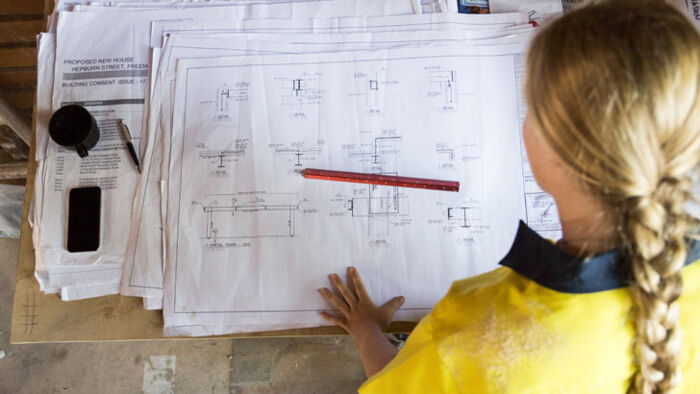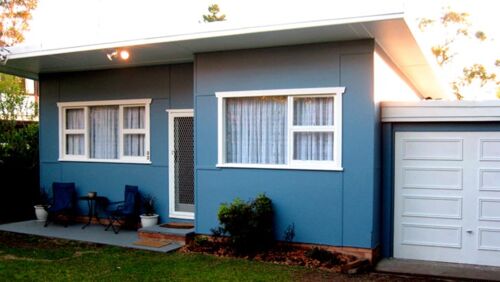Managing your budget when building a house
By Tracie Ellis
Setting off on the journey of building a new home is one of the most exciting and rewarding things you will ever tackle. It also comes with a hefty financial commitment and is, more often than not, gruelling and emotionally draining.
If you are up to the challenge, it is important to remember that if it's worth doing, it's worth doing well. Arming yourself with as much knowledge as possible is key to a successful build.
Before you jump too quickly into signing up with your builder, understanding the process, your contract and scope of works will ensure you achieve the best outcome for a smooth and stress-free (as much as possible) build.
Regardless of whether you are a novice or a seasoned expert, there are certainly proactive steps you can take to ensure your build is a breeze and silly, costly mistakes are avoided.
The current uncertainty in the construction industry makes it more important than ever to be well prepared.
Prepare the budget
A good budget takes into consideration all elements of the build, ensuring you have reserved funds, as you can be sure you will incur variations during your build. It is of utmost importance to set a maximum budget for your project.
There are many items that will not be included in your contract, for example:
• Architectural fees
• Approval fees
• Planning fees
• Electrical and gas meters
• NBN connection
• Window coverings
• Outdoor concreting
• Landscaping
• Fencing and gates
• Driveways
• Decking
• Letterbox
• Pool and furniture.
Some of these items are commonly referred to as finishing costs and can incur an additional 15%-25% of your budget. In addition to the above, you may incur extra costs that are associated with preparing your site for construction.
Landscaping, fencing and blinds alone can see you incur an additional $20,000 to $50,000 (and more), depending on your home and your unique requirements.
What are variations?
These are changes or alterations made during your build, which are outside what is specified in the scope of works of your contract. These include changes to the:
• Design
• Materials
• Product
• Quantities
• Quality
• Sequence of work
• Scope of work
Both the homeowner and/or the builder may request a variation.
It is important to understand that a building contract is a legally binding document. The best way to avoid expensive variations is to take time to prepare for your build well. Do not rush because you are eager to get moving. Be very thorough, careful and involved when it comes to planning - and never sign a contract until you are certain that it details everything you require.
This means making sure your contract includes things like:
• Specific detail on make and model for selections such as benchtops, joinery, tapware, lighting, etc
• Timber floors should be specified to the exact product and finish, not simply defined as "timber floors"
• Specific detail on paint selection, along with the number of coats.
Engaging a construction lawyer to look over your contract before signing on the dotted line is always money well spent.
It is important to remember that even the best plans don't always fall into place. Sometimes builders need to request variations as the original plans simply are not the most practical or sensible option.
What can happen
Despite the time that is put into your build and contract preparation, there will always be product selection that you want to defer, until you are at that stage of the build. Let's take bathroom, ensuite and laundry tiles, for example.
Say you agreed with your builder to settle for a "PC" (prime cost) of $35 per sq m and decide to make your selection once you are closer to that component of the build. The time then arrives for decisions; however, the allowed sum of $35 per sq m will only permit you to select the most basic of tiles. You have fallen in love with tiles that you simply "must have" at $89 per sq m for the bathroom, $139 per sq m for your ensuite and $72 per sq m for the laundry. The table below shows the cost you would incur for the variations in this scenario.
You can see that not taking the time at pre-construction phase to select the product has incurred a variation. You could also incur a variation on extra labour.
The builder is well within their rights to charge you a variation for these selections. It may even be more, if you had already selected the basic tile at the outset (as the builder may have purchased these), resulting in you paying for the original tile, in addition to your new selections.
Managing any changes
It is important to manage variations well, as many variation bills result in litigation between the parties, something that you certainly don't need - and it's another additional expense! So, if a variation is on the horizon, it is important to:
• Agree to the changes and costs in writing;
• Consider a different solution; or
• Continue with the original plans.
It is important that all details of each variation (including price differential) are put in writing and signed off by both parties before any work is completed.
One thing is for certain: any bitter litigation at the end of a build more than likely started with a breach of professional boundaries at some point during the process.
Assuming that all parties are "friends" allows important paperwork to slip through the cracks. Documented acceptance of variations is essential throughout the build process.
Another important consideration is the flow-on effect that variations have on deadlines and your completion date.
As your build progresses, it is not uncommon for your ideas to change. A home can look very different to what you envisaged from the plans.
Making changes like moving windows or walls or modifying door sizes are also considered variations, as would be an additional feature wall or path. All result in a growing list of variations.
Be absolutely clear
Always remember that if there is something you don't understand in your plans or your contract, you should ask. Ask for clarity on everything, as that will ensure your budget stays where it should be - on track.
It is much easier to make changes in the pre-construction phase than it is to make variations once your home is under construction. Most of your materials are pre-ordered, and changing or moving items can not only be expensive, but may delay your build by weeks or sometimes months.
Carefully read through the contract with your builder to make sure you understand its contents. Make sure you are not taken by surprise by what the construction costs cover and what they don't cover.
Your contract should include a cooling-off period, with a timeframe for construction that suits your needs. Check to see that it includes detailed plans, warranty and insurance information. Also pay close attention to the payment schedule.
Building a home is one of the most exciting investments you will ever make, so you can't be blamed for rushing and not looking into the finer details of your plan and contract. But the owner is responsible for anything that has been signed off, so it is essential to know what is and what is not included.
Take the extra time upfront to go through your plans over and over again with a fine-tooth comb. What might seem monotonous now may avoid disappointment down the track.
Get stories like this in our newsletters.



